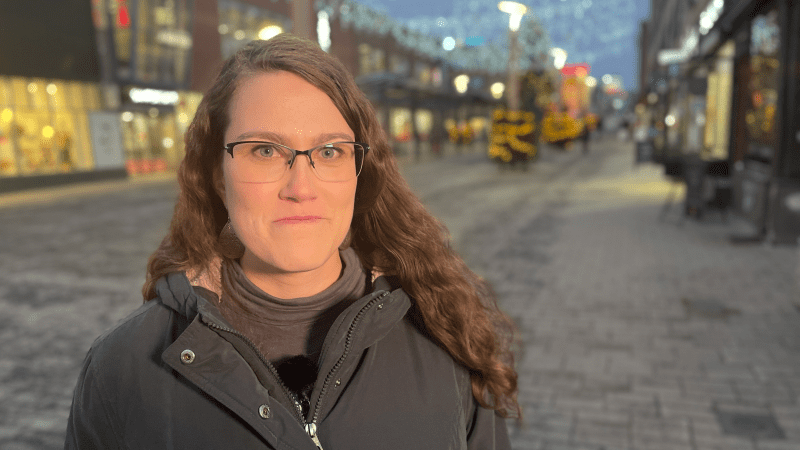Antarctica is such a big glacier that it affects the climate of the whole earth. The researcher estimates that despite the visible changes, we can still enjoy the frosty winter and snow in Finland.
Leppänen’s mission is to study the Antarctic snow and ice at the Finnish research station Aboa. Cooperation is carried out with Swedish, Norwegian and German research stations. The research trip was supposed to be done a year ago, but the corona pandemic postponed it.
– Snow and ice research helps in monitoring the state of the climate. It can be seen whether changes have taken place. The measurements aim to reduce inaccuracies in satellite observations. Antarctica is such a big glacier that it affects the climate of the whole earth. I hope that we will now get more detailed information about, for example, the roughness and thickness of the ice, says researcher Leena Leppänen.
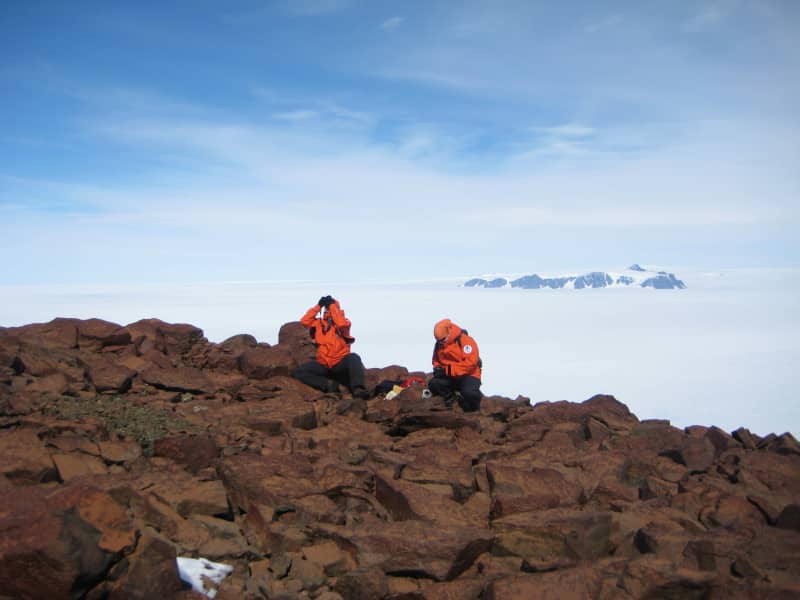
He estimates that in Finland and the north we can still enjoy the frosty winter and snow. However, changes have been visible.
– There have been changes in the thickness of the snow, i.e. one winter there is very little snow and another winter there is a lot. However, there are often average amounts of snow. In addition, the length of winter is getting shorter, says Leppänen.
Second time to Antarctica
Leena Leppänen went on a similar expedition to Antarctica in 2014.
– Even then I took snow measurements. A hole is dug in the snow and the temperature, humidity and density of the snow are measured from the wall of the hole, among other things, how it changes at different depths.
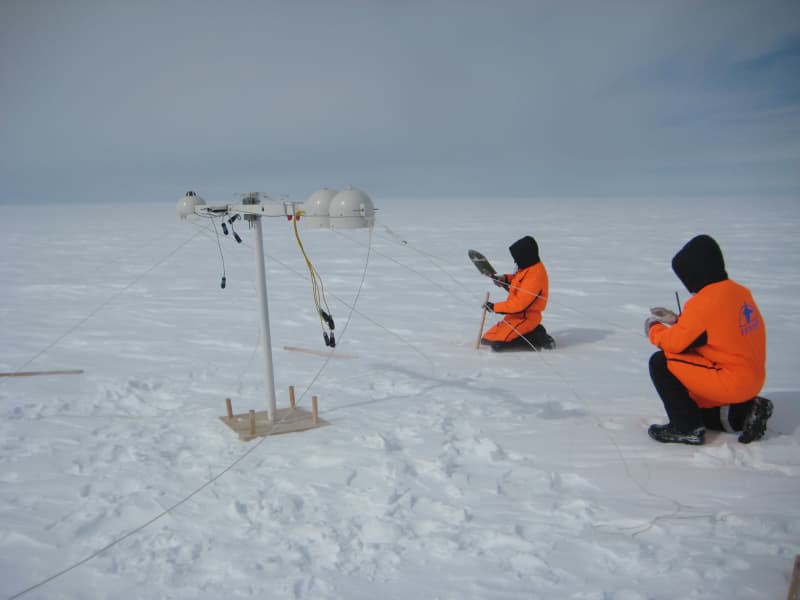
Leppänen says that Antarctica is really bright. One of the most important pieces of equipment for a trip to Antarctica is sunglasses, which are specially designed for glacier use. They are completely blacked out and provide good protection from the bright sun.
– Snow reflects sunlight so strongly. The colors of the landscape are mostly dark stone and white ice.
You can go on a research trip if you are healthy and strong in character
Not just anyone can get to Antarctica. You can join the expedition if you have strength of character and, of course, professional skills. The Internet does not work, connections to the rest of the world are not a matter of course. You can keep in touch with loved ones with WhatsApp, if it works, and with the station’s common e-mail.
Leisure options include DVD movies, books, dumbbells and yoga mats. You can take short walks near the station. You have to be careful when walking and otherwise, because, for example, breaking a leg would mean evacuating the expedition and interrupting the expedition.
Leena Leppänen has undergone medical examinations, dental examinations and interviews with a psychologist. So that possible diseases do not pop up during the trip. Just before the trip, the expedition members spend a few days in home quarantine in case of corona.
– You have to have basic health, but you also have to have courage and open-mindedness. Just an ordinary person, Leppänen thinks.
If everything goes as planned, the Finnish expedition will return from Antarctica at the beginning of February 2023.
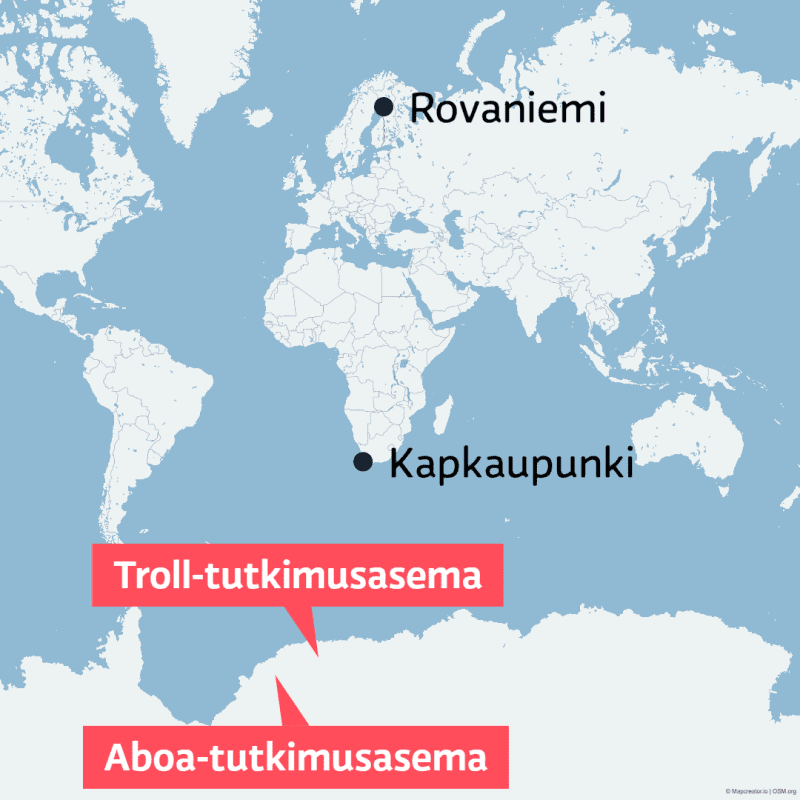
Penguins, blizzards and grebes
According to Leena Leppänen, Antarctica is pretty quiet. However, there is some life in the area. The research doctor has seen, for example, penguins on his previous trip, when Finnish scientists visited the German station by the sea.
– A couple of different bird species live near Aboa, blizzards and wagtails, he says.
The Finns’ Aboa research station is located about 300 kilometers from the German station, and about 600 kilometers from the Norwegian station. The Swedish research station is next to the Finnish Aboa, a couple of hundred meters away.
– Swedes will come to Antarctica in mid-December. Together with the Norwegians and Germans, we will first travel through Oslo and Cape Town to Antarctica to our own stations, Leppänen says.
Antarctica has frost in the summer
The expedition must be organized in Antarctica during the summer, i.e. November-February. Antarctic summer can be compared to Finnish winter.
– In the summer, i.e. now, Antarctica has comfortable temperatures, from a few minus degrees to minus twenty. If there is no wind, the weather is quite nice there, researcher Leena Leppänen says.
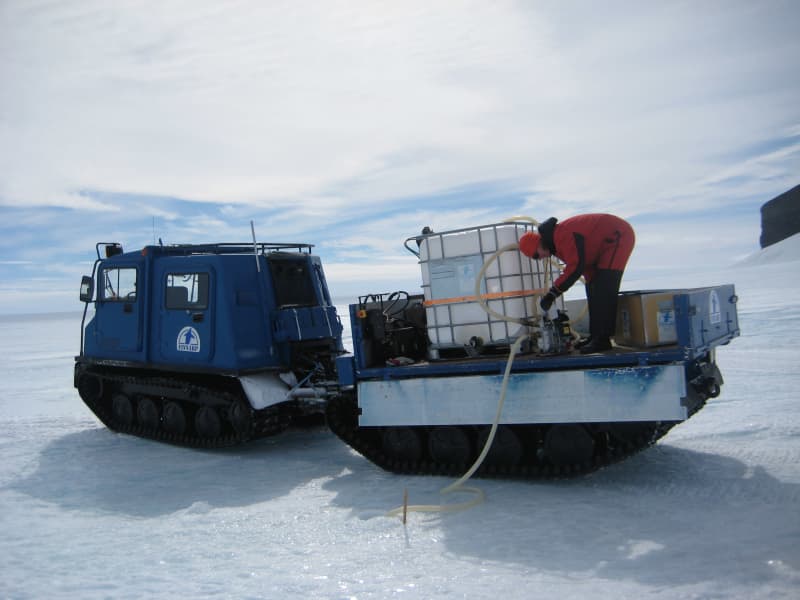
Wind and rain hinder research, especially flying drones requires good weather. The conditions are harsh.
– I got to drive a nasu, i.e. a tracked truck, a couple of times. I drove it to the water intake. At the beginning of December, water no longer needs to be melted from the snow, but in the blue ice area, the sun melts water under the surface ice.
The Antarctic measurements are related to the Finnish Meteorological Institute’s LAS3R project funded by the Academy of Finland. Finland’s Antarctic logistics and Aboa’s maintenance is handled by FINNARP, an Antarctic logistics company operating under the Finnish Meteorological Institute.
*Discuss the topic* *With Yle ID* *4.11. until 11 pm*

